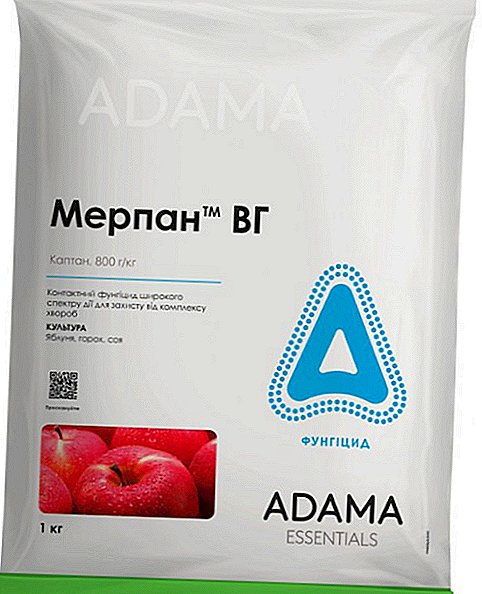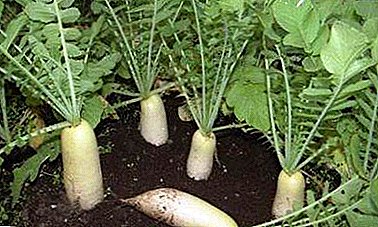
The appearance of fleas in domestic parrots is a rare but common phenomenon.
That is why the owners of birds is desirable to know what to do in case of defeat of their pets insatiable flea bloodsuckers.
Consider in detail the problem of fleas in parrots.
What types of fleas parasitize on parrots? Signs of infection of feathered pets
 Most often domestic parrots (of various breeds) are attacked by the following types of fleas:
Most often domestic parrots (of various breeds) are attacked by the following types of fleas:
- chicken flea;
- duck flea;
- flea pigeons.
Individual data not much different from their relatives (cat and dog flea). They have the same body structure (rounded and slightly flattened on the sides), three pairs of legs, brown color. The size of insects varies from 2 to 6 mm.
Bird parasites are of little interest to residents and animals in the house. Unlike other species of the flea family, they settled mainly in the nesting houses of birds and extremely rare in a residential area.
The reason for this is the feature of mating of flea birds: this process in insects occurs during the nesting periodwhen the bird is in its nest (or in the house). Bloodsuckers actively produce, laying a large number of eggs, of which the young generation appears after 2 weeks.
Fleas living on the body of a parrot are less dangerous for humans and domestic animals, but they can also be carriers of infections and worms.
A flea can get into the cage of a domestic parrot in several ways:
- come from the street on clothing or footwear household;
- together with feed purchased on the market;
- your pet has already been infected with fleas before entering the apartment (usually this happens if the birds are not properly monitored in pet stores).
How to understand that your pet is infected?
 To determine the presence of fleas in parrots is quite problematic and there are reasons for this:
To determine the presence of fleas in parrots is quite problematic and there are reasons for this:
- parasites do not leave characteristic marks (red bumps) on the body of birds;
- excessive excitability of birds (an important symptom) is also difficult to notice, because the restless and naughty nature is inherent in them from nature.
You should be alerted if:
- the bird rubs against the bars of the cage more often than usual;
- losing feathers;
- trying to nibble down his beak;
- constantly shouting;
- sleeps badly;
- losing weight.
If there are at least two of the above signs, you should independently inspect the bird. For this Careful not to damage the wings and the neck of the parrot, you should carefully examine the feather after the feather for fleas.
If your pet, suspecting something unkind about your intentions, is not given in hand, it bites and scratches violently, then the bird shouldn’t be tortured. Trust her to the vet. An experienced specialist will quickly detect the presence of parasites.
Fight against fleas in parrots
 If an accurate diagnosis of a flea has been made, the bird must be treated.
If an accurate diagnosis of a flea has been made, the bird must be treated.
Take measures to rid the winged pet of the parasites should be immediately, to save him from the suffering caused by insatiable bloodsuckers.
For effective treatment, you can use veterinary drugs: "Ivermek"and"Front line".
IMPORTANT! These medicines are applied only on the skin of parrots! It is strictly forbidden to process the plumage with these drugs! Before use, you should carefully study the instructions for use!
Will help to destroy insects and means "Neostomosan".
It is more harmless to birds medicine. A drug bred in warm water and applied to the whole body of a parrot in two ways :
- feathered can be redeemed in solution (avoiding contact with the head and eyes);
- spray a winged pet from a spray bottle.
The calculation of the dose is made based on the weight and size of the bird.
Handling birds is only a part of the necessary measures for flea parasite excreta. Fleas do not live on bird body, they visit him from time to time in search of food.
Sucking plenty of blood, jump, hiding in their house or cage. It is there that fleas mate, multiply, laying hundreds of eggs, from which a fresh batch of young parasites hatch in a short time.
Therefore, in order to prevent the reoccupation of the feathered pet by vicious insects, should be thoroughly disinfected parrot habitat.
Disinsection cage and parrot inventory
 For the complete processing of the cell, it must be completely cleaned:
For the complete processing of the cell, it must be completely cleaned:
- remove sawdust, feathers, bird excrement from the floor;
- remove the house, drinker and food bowl.
Thereafter the cage is well washed (each twig) with a soap-soda solution, then scalded with boiling water and carried to fresh air (balcony, loggia), where the air is several hours before drying. The same manipulations are done with the house and the parrot inventory (water bowl, bowl, toys).
Is it possible to avoid all these tedious events both for the bird and for its owner of activities and to ensure that the fleas never visit the parrot's cage? Of course available!
Preventive measures
- hygiene. Constantly, every 3-4 days, change the litter in the cage, wash the tray with boiling water;
- keep the water bowl and the feed bowl clean;
- If you have purchased a new bird in a pet store, treat it with an insecticidal agent and place it on a week-long quarantine, only then do it with relatives;
- Once a week, place a bath with sand mixed with antiparasitic powder in a parrot's cage, let it bathe on health;
- Spread the sprigs of fresh wormwood in the cage. Fleas do not digest the wormwood scent and will bypass your bird in far away lands..
Parrots are especially tender and defenseless creatures that need caring and proper care. Remember this and take care of your bird!












